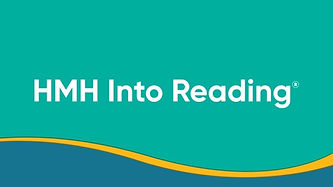
Administrator
More coming soon.

Marketing Director
More coming soon.

Custodian
More coming soon.

Administrator
More coming soon.

Marketing Director
More coming soon.

Custodian
More coming soon.

Administrator
More coming soon.

Marketing Director
More coming soon.

Custodian
More coming soon.
Our Curriculum
Click the type of curriculum to learn more about each type:
English Language Arts
Our English Language Arts (ELA) curriculum is grounded in the Science of Reading—a body of research that explains how the brain learns to read, emphasizing phonemic awareness, phonics, fluency, vocabulary, and comprehension. All instructional lessons are aligned to the South Carolina College- and Career-Ready Standards to ensure consistency and rigor across grade levels. We implement the HMH Into Reading curriculum in grades K–5 and enhance it with high-interest chapter books and engaging nonfiction articles to expose scholars to a wide variety of texts.
This approach helps foster a love of reading while also building strong comprehension skills and academic knowledge. In grades K–2, we teach structured literacy, a research-based method aligned with the Science of Reading that provides explicit, systematic instruction in foundational skills. As scholars move into third grade, they transition to foundational literacy, which continues to support decoding while building fluency, vocabulary, and deeper comprehension.
Writing is a core component at every grade level, with an emphasis on narrative writing in grades 2–4 and persuasive writing in grade 5. Grammar is taught intentionally in all grades, and vocabulary instruction targets all three tiers to build strong language and word knowledge. We plan meaningful project-based learning (PBL) experiences that connect with our reading units, giving students the opportunity to apply what they’ve learned through collaboration, creativity, and real-world problem solving. We believe in the power of the written word and strive to create confident, capable readers and writers. To learn more about our ELA program, LEARN MORE.
Math
Numbers should add up to more than the right answer. They should inspire aha moments and joyful connections. Eureka Math® set a new standard for rigor, coherence, and focus in the classroom, so students gain a deeper understanding of the why behind the numbers while making math more enjoyable to learn and teach. Scholars engage in the Eureka curriculum for 90 minutes four days a week.
Additional links of interest:
STEM
Project Lead the Way (PLTW) provides transformative learning experiences and hands-on STEM lessons for our scholars that align with the Next Generation Science Standards. Through a series of modules, scholars are presented with a real-world problem and must work collaboratively to use the Engineering Design Process to create a prototype that solves the problem. Scholars engage in the PLTW curriculum as part of their enrichment classes for 45 minutes daily every other week.
Additional links of interest:
Social Emotional Learning
Fly Five is a kindergarten to eighth grade social and emotional learning curriculum developed on the core belief that, in order for students to be academically, socially, and behaviorally successful in, out of, and beyond school, they need to learn a set of social and emotional competencies, namely cooperation, assertiveness, responsibility, empathy, and self-control (C.A.R.E.S.). The Fly Five lessons are intentionally designed to be easy to follow and implement so that teachers can place their attention on the important work of noticing a student’s academic, social, and emotional growth and progress and creating conditions for that progress to continue.
More information per grade level ...
Kindergarteners focus on forming strong, trusting relationships built upon compromise, courtesy, and inclusivity. Through guided explorations, students practice expressing their thoughts, reasoning, and feelings constructively while also respecting the thoughts, reasoning, and feelings of others. Through interactive learning structures and SEL stories, students discern appropriate self-management techniques and explore how to make responsible choices for themselves and the school community.
Kindergarten instruction lays the foundation for students to work well with others across differences and, specifically, to make intentional choices about their own thoughts and behaviors. In shaping their understanding of community, they take steps toward becoming positive, engaged students in their classroom.
First graders practice working with others while building a strong and resilient sense of self. Through guided journal prompts and creative group activities, students learn to foster active listening skills and develop an understanding of actions and consequences. They use scenario cards and group sharing to strengthen their ability to articulate how they make decisions and hold themselves accountable for any consequences that may arise, as students refine their identities, pick up on social norms, and manage their behaviors without external motivation increases.
First-grade instruction helps students focus more broadly on the classroom community, giving them the tools to develop situational awareness and the personal accountability necessary for SEL skill development and cognitive growth.
Second graders learn to account for the thoughts, experiences, and emotions of others with the same level of consideration they give to their own thoughts, experiences, and emotions. Through vocabulary posters and interactive learning structures, they extend their practice of active listening to include respectful disagreement and taking the initiative to resolve differences.
While students can increasingly define and articulate their personal opinions, they use reflective journal prompts to practice expanding their capacity for open, honest, and flexible collaboration. With little prompting, they can hold themselves accountable for their behaviors and begin considering how to make better choices in the future. Second-grade students not only possess a well-developed understanding of how their actions impact others, but they will strive to make choices that foster a positive, inclusive community.




